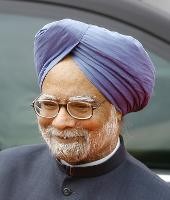The terrorist carnage in Mumbai resulting in more than 170 deaths draws attention to the role of Pakistan, which India instinctively accuses of responsibility. The fedayeen-type attack singled out Americans and Jews as targets, which smacks of an al-Qaida game plan. Delhi initially distinguished between terrorist groups in Pakistan and the Pakistani authorities as such, but that distinction is getting blurred. Islamabad stubbornly rejects imputations of involvement. Reflexes are hardening on both sides. In the competitive environment of domestic politics as India heads for general elections in the next six months, it will be suicidal for the ruling party to be seen as compromising on terrorism. The Indian interior minister has been forced to quit, accepting political responsibility for security failings. India is now contemplating measures aimed at freezing its "composite dialogue" with Pakistan.
Mumbai Attacks Complicate U.S. Regional Policy

